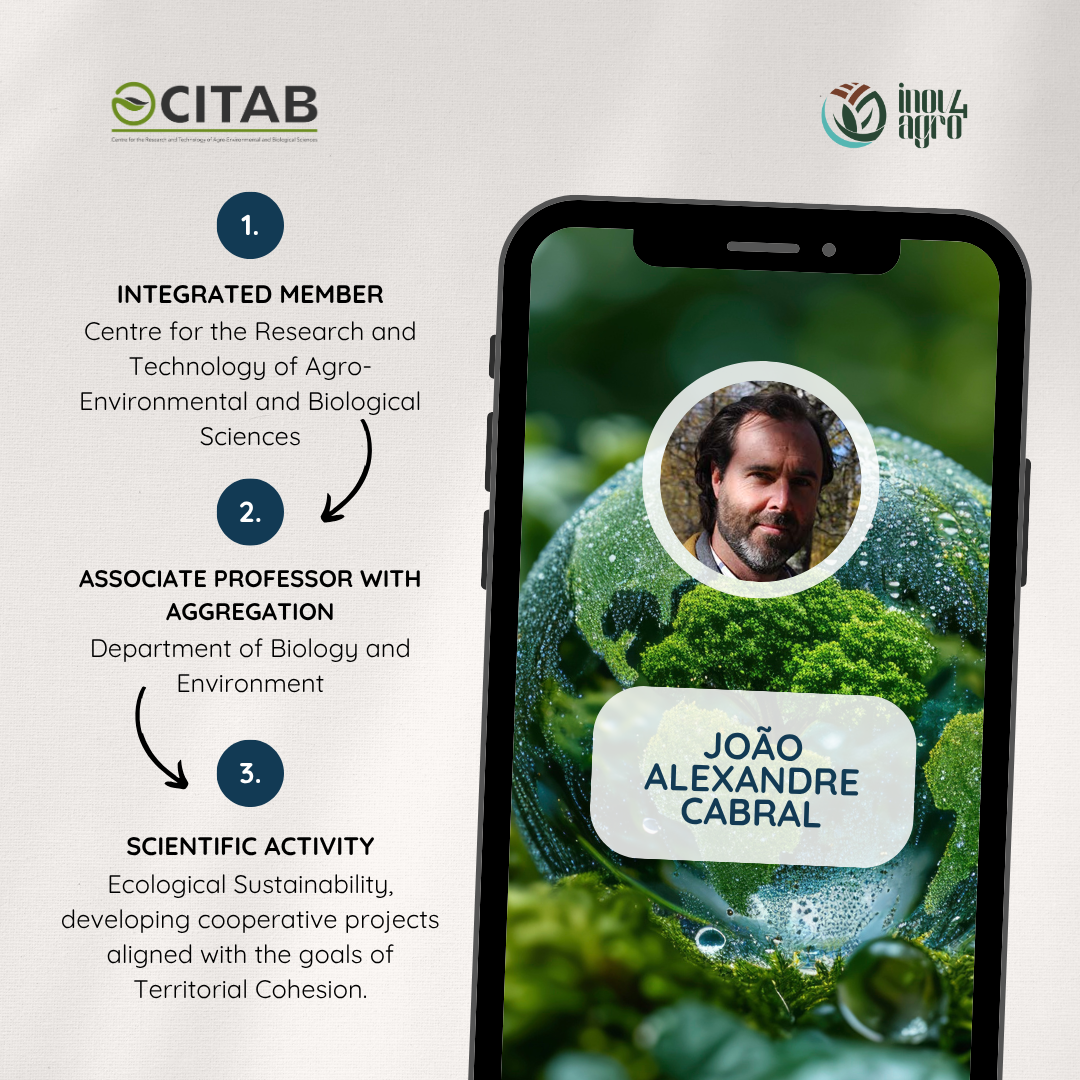Get to know... João Alexandre Cabral
Creating Synergies between Research and Knowledge Transfer towards Ecological Sustainability

During more than 20 years of dedication at UTAD to connecting technical and scientific knowledge generated through research with knowledge transfer, I had the privilege of coordinating three laboratories in the area of ecological sustainability. Founded in 2001, the Laboratory of Applied Ecology (LEA), initially integrated into CETAV and later transferred to CITAB, established itself as a research team focused on developing studies and methodologies in the fields of biodiversity inventory, monitoring, conservation, and ecological modelling. LEA's complementary funding strategy was to raise funds for UTAD, primarily through the provision of specialized services under long-term ecological monitoring programs, focusing on the infrastructural impacts of the energy transition on biodiversity. In 2021, with the integration into the Laboratory of Fluvial and Terrestrial Ecology (LEFT), this trajectory was consolidated, totalling more than 100 projects executed, involving more than 30 different entities, both public and private, and positioning CITAB/UTAD at the forefront of university knowledge transfer in these fields, not only at the regional but also national level.
With this experience, but leaving the provision of specialized services in 2023, in 2024 I promoted the creation of an informal research network, called the Laboratory of Ecology Applied to Sustainable Territories (LEAST). This network involves research teams, companies, municipal entities, and non-governmental organizations, based on a win-win partnership approach, developing cooperative projects aligned with the goals of Territorial Cohesion. LEAST aims to contribute innovatively with technological approaches to decision-making (remote sensing and modelling), within the scope of public policies and respective financial instruments, with an emphasis on socio-ecological sustainability and the valuation of ecosystem services in sparsely populated territories. LEAST is currently involved in coordinating the CRUSOE Network's "Ecological Transition and Global Change" Working Group, on the Scientific Committee of the European Green Capital (Guimarães 2026), and in the co-management of the Baixo Sabor LTER Site.